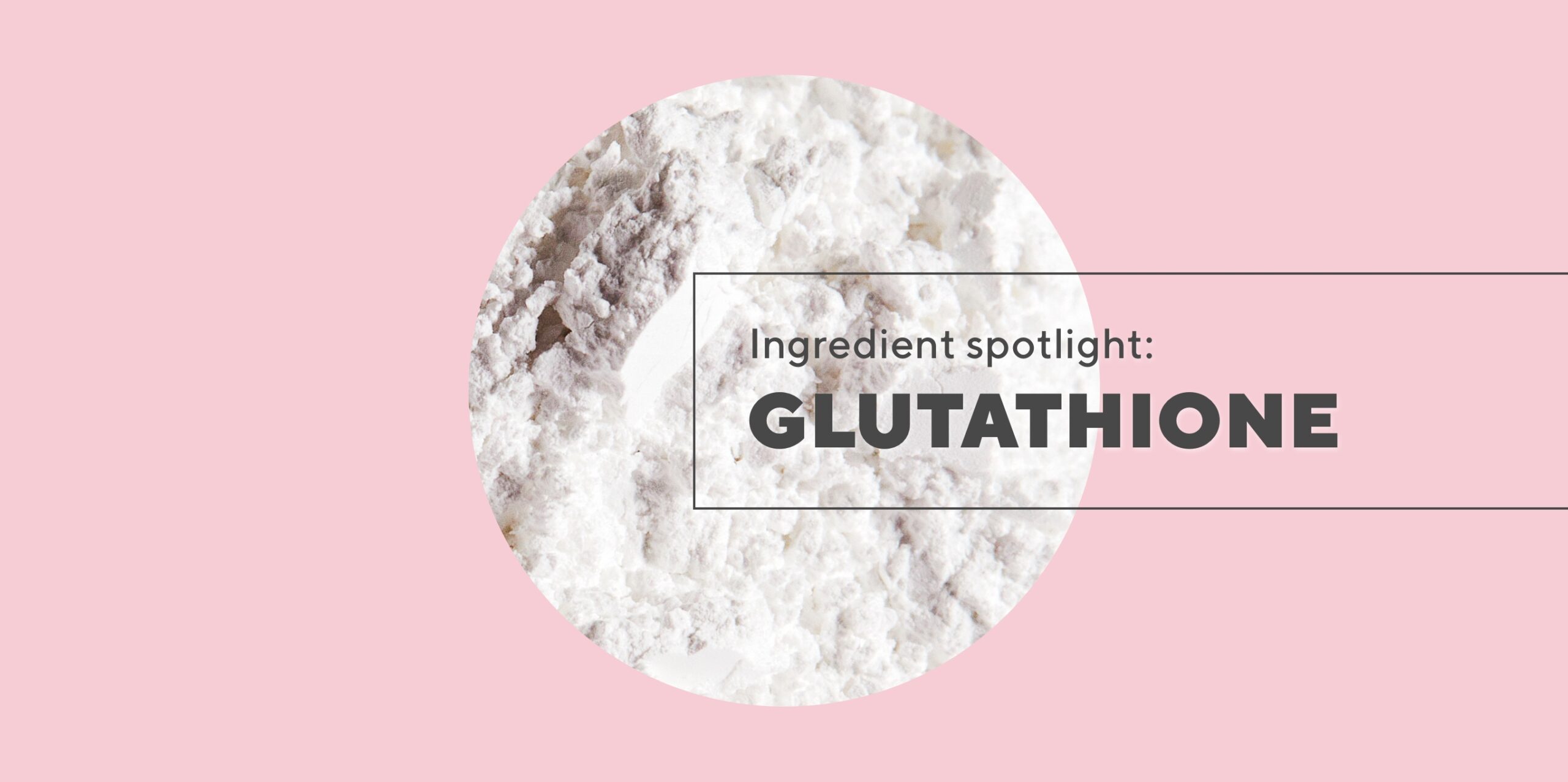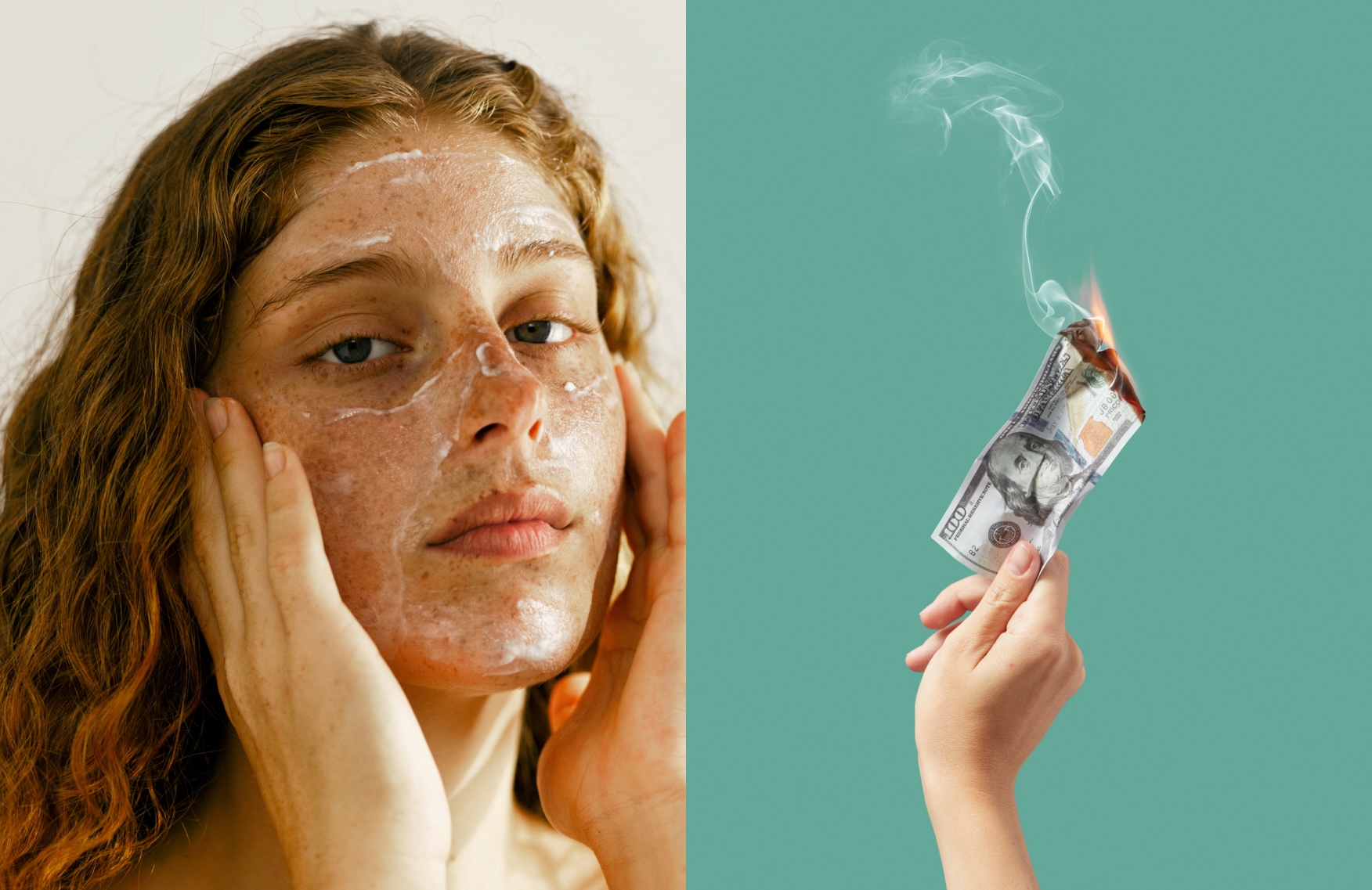Ingestible skincare ingredient: Glutathione—is it a shady skin lightener or a misunderstood skincare superstar for hyperpigmentation and fine lines?

You may have heard some unsavory things about how cosmetic companies hawked glutathione—a powerhouse antioxidant—as a skin lightening agent targeted at communities of color. This unnecessarily linked a remarkable, naturally-occurring compound to uncompromising (not to mention damaging) beauty standards.
Thankfully, skin experts’ understanding of glutathione has come a long way in the past few years, and we’re here to set the record straight on this multi-dimensional supplement ingredient that can bring out the brightest, most balanced version of our natural skin tone.
What is glutathione and what does it do?
Glutathione is an antioxidant compound found in myriad organisms across the spectrum of life, from plants to fungi to the cells in the human body. Its cardinal role is to support the natural detoxification process: helping cells get rid of the metabolic waste they generate. This is an important health benefit because every function of your body, from digesting your food to a shift in your mood, has the potential to produce metabolic waste, generate free radicals and produce a molecular state of imbalance called oxidative stress.
Antioxidants like glutathione are endogenous substances (substances naturally produced by your body) that take free radicals to task. In doing so, they combat oxidative damage and restore your body to a balanced, efficient, high-tier level of functioning.
While glutathione’s anti-toxicity properties have made it an effective treatment for many health conditions, this powerful antioxidant also has a cosmetic application when used as a skincare supplement: glutathione’s benefits for skin include replacing dullness and hyperpigmentation with brighter, glowing, healthier-looking skin.
Some have also started using glutathione injection and IV therapy—like intravenous glutathione or IV glutathione to improve glutathione levels even though oral supplements, such as glutathione tablets, are more readily available.
What are the benefits of glutathione for skin?
Just like collagen, glutathione levels diminish as we age and various systems of the body—from immune health to our cutaneous (skin) function—are more susceptible to the damaging effects of oxidative stress. In skin, this can result in:
- Photodamage (premature aging)
- Hyperpigmentation
- Fine lines
- Lower collagen content
- Dull-looking skin
As one of the master antioxidants throughout the body, glutathione wields the reparative powers to help suspend the process of accelerated oxidative stress and restore the appearance and function of healthy skin. And, glutathione supplementation with the combination of vitamin C and vitamin E can be a recipe for glowing skin.
Here are three ways glutathione underwrites healthy skin at every age
Studies show that glutathione does interact with the melanin-production of our skin in 2 ways: by mitigating melanin overproduction and controlling free radicals. These two factors arrest the chain reaction that can result in hyperpigmentation (think dark spots, sun spots, and patches of discoloration) caused by sun exposure, medications like birth control, hormones, pregnancy and/or inflammation.
Supplementing with glutathione and shielding your skin against daily UV damage with a face moisturizer with SPF can help to shore up resilience against photodamage, lessening the incidence of hyperpigmentation in a matter of weeks.
Glutathione helps your skin to withstand the damages of excessive sun exposure, helping to preserve its collagen content—the body’s most plentiful protein. In one study from Japan, people who took a glutathione supplement for 12 weeks saw a noticeable improvement in skin elasticity, as well as a lessening of the appearance of wrinkles.
Every time our skin fends off an infection, toxins or other damages, time has the opportunity to etch its mark into our skin. Aging is, in large part, a result of these incursions, altering the internal structure of our skin—its water content, collagen, and elastin—over time. A healthy immune system and beautiful-looking skin go hand in hand, and the glutathione supplements can help to replenish our bodies with a constitutive element it needs to reverse the state of oxidative stress and reinforce your immune’s system to fend off diseases. The result? Healthier, more youthful skin with a built-in ability to lock in resilience for longer.
The views expressed in this article do not necessarily represent the views of Murad, and are for informational purposes only, even if the advice of physicians and medical practitioners are included. This article is not a substitute for professional medical advice, diagnosis or treatment, and should not be considered specific medical advice.
References for this information:
Biochemistry and Cell Biology, 2019, volume 92, issue 3, pages 270-289
Biochemical Pharmacology, 2003, Volume 66, issue 8, pages 1499-1503
International Journal of Biomedical Science, 2008, volume 4, issue 2, pages 89-96
Pharmacology Review, 2010, volume 4, issue 8, pages 118-126
Antioxidants and Redox Signaling, 2013, volume 19, issue 8, pages 813-822
Nutrients, 2019, volume 11, issue 9
Biomolecules, 2015, volume 5, issue 2, pages 545-589
Aging: Oxidative Stress and Dietary Antioxidants, 2014, pages 15-22
Asian Pacific Journal of Cancer Prevention, 2014, volume 15, issue 2, pages 561-568
Clinical, Cosmetic and Investigational Dermatology, 2017, volume 10, pages 147-153
British Society for Immunology, 2020, volume 160, issue 2, pages 116-125
Harvard T.H. Chan School of Health Website, The Nutrition Source
More about skincare ingredients as ingestibles here:
Ingestible skincare ingredient: Phytoceramides—are they a ‘facelift in a bottle’ and the secret to radiant, firmer skin from the inside out?
Ingestible skincare ingredient: Vitamin A—the top 4 reasons why it’s a skin-saving superpower
Ingestible skincare ingredient: Vitamin E—from being the ultimate antioxidant to protecting against inflammation
Ingestible skincare ingredient: Burdock root—the natural solution for everything from digestion to a clearer complexion?
Ingestible skincare ingredient: Grapeseed oil—the only ingredient you need on your supplement shelf for radiant, even skin?


